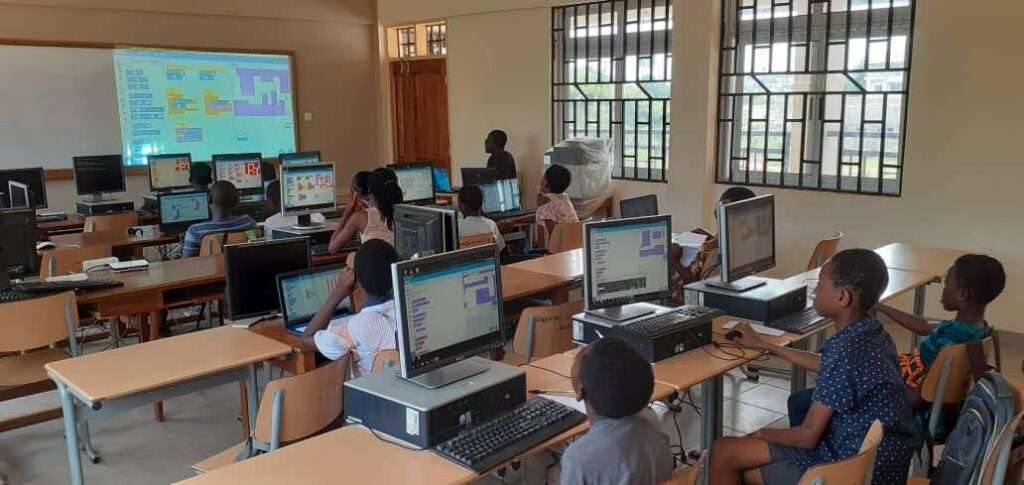During the ongoing State of the Nation Address (SONA), President John Dramani Mahama underscored his administration’s commitment to reshaping Ghana’s education system to meet 21st-century demands.
He emphasized the need to provide “meaningful and relevant education” to equip young Ghanaians for today’s technology-driven job market. Despite various reforms, he acknowledged that learning outcomes remain low, making quality education a top priority.
Mahama highlighted that the education system his government inherited was outdated and in need of realignment to match modern industry and technological advancements. “…[It] must be realigned to meet the needs of the 21st century and the Fourth Industrial Revolution.”
As part of efforts to foster inclusive governance, he launched the National Education Consultative Forum on February 18 in Ho.
He expressed confidence in the recommendations from this initiative, promising to incorporate them into education sector policies.
“Mr. Speaker, even though Article 38 of the Constitution guarantees equitable access to education across Ghana, 30 years after the Free Compulsory Universal Basic Education (FCUBE) program, its full objectives remain unmet.”
President John Dramani Mahama
To address these persistent challenges, Mahama announced a redefinition of basic education, introducing the “Zero to Hero” initiative aimed at enhancing foundational literacy and numeracy.

Additionally, ICT training will be integrated into early childhood education, with plans to expand the initiative to cover 300 classrooms, 30 centers of excellence, 1,000 teachers, and District Teacher Support Teams (DTSTs) focusing on mathematics and literacy over the next three years.
According to the President, the Ministry of Education will fully implement a new curriculum for Senior High Technical Schools and STEM institutions this year.
Furthermore, a standardized National Sign Language will be introduced to support hearing-impaired students from Kindergarten through Senior High School.
Mahama emphasized the expansion of social intervention programs, including Capitation Grants, Feeding Grants for Special Schools, and free registration for the Basic Education Certificate Examination (BECE) candidates.
“To promote inclusion and equity, the government will: Enhance and resource the Islamic Education Unit to recruit more Islamic and Arabic tutors; Establish STEM and TVET schools in underserved peri-urban communities; Provide scholarships to brilliant but needy students in deprived communities, especially for law, medicine, and engineering; Support Islamic Colleges of Education with infrastructure and logistics; Enrol youth in Zongo and deprived urban areas in the National Apprenticeship Programme and offer free technical and vocational training.”
President John Dramani Mahama
Teacher Welfare and Infrastructure Upgrades
Moreover, President John Mahama stressed the importance of retaining and motivating teachers, especially in rural and underserved areas.
He reiterated the government’s commitment to implementing a 20% allowance for teachers who agree to serve in rural schools, with District Assemblies involved in ensuring compliance.
Under the “Teacher Dabr3” initiative, the government will commence the construction of teacher accommodation units to improve welfare and attract educators to remote areas.

Refuting allegations of plans to discontinue the Free Senior High School (SHS) program, Mahama reassured Ghanaians of his dedication to enhancing its implementation.
“Mr Speaker, once again for emphasis, and for the record, I, John Dramani Mahama, President of the Republic of Ghana, will not cancel the free SHS program. I am determined to make it better by improving its implementation.”
President John Dramani Mahama
He also criticized the previous government’s claim of 5.1 million Free SHS beneficiaries, stating that the real figure stood at 3.4 million.
“The figure of 5.1 million beneficiaries, as previously put out by the Akufo-Addo government, was an exaggerated and false narrative calculated to achieve political credit.”
President John Dramani Mahama
The President acknowledged that while the Free SHS initiative had improved access to education, its implementation needed refinement.
The outcomes of the ongoing National Education Forum, he said, would guide reforms in the sector.
Tertiary Education Reforms and STEM Expansion
Additionally, President Mahama reaffirmed his administration’s commitment to academic freedom and governance improvements within public universities.
He announced plans to eliminate tertiary admission fees under the “No-Fee Stress” policy, which seeks to remove financial barriers to higher education.
The initiative will be complemented by an enhanced Student Loan Scheme (Student Loan Plus), ensuring broader financial support for students.

Furthermore, TVET enrolment will be increased from 11% to 20% to improve employability among graduates.
“Ghana has consistently missed its Gross Tertiary Enrolment targets, with the rate below 22%—far from the 40% goal by 2030. Despite over 460,000 secondary graduates annually, 55% qualify for tertiary education, and only 35% (161,000) enroll, leaving over 300,000 without access.”
President John Dramani Mahama
To address the strain on university infrastructure caused by rising enrolments, feasibility studies will commence for new public universities or satellite campuses in the six newly created regions.
Seed funding for these projects will come from the GETFund to ensure expanded access.
The government will also collaborate with public universities to identify land for private sector investment in student hostel facilities, ensuring improved accommodation for tertiary students.
Mahama concluded by reaffirming his administration’s commitment to STEM education, noting that regional TVET Centres of Excellence would be established to provide hands-on training in technical fields.
“Science, Technology, Engineering, and Mathematics (STEM) are central to national development. We will expand STEM programs at all levels to equip students for the global economy.”
President John Dramani Mahama
As the education sector undergoes significant policy shifts, all eyes will be on how these ambitious reforms unfold in the coming months.
READ ALSO: D-Black Reveals Reason Sefa Left His Record Label



















